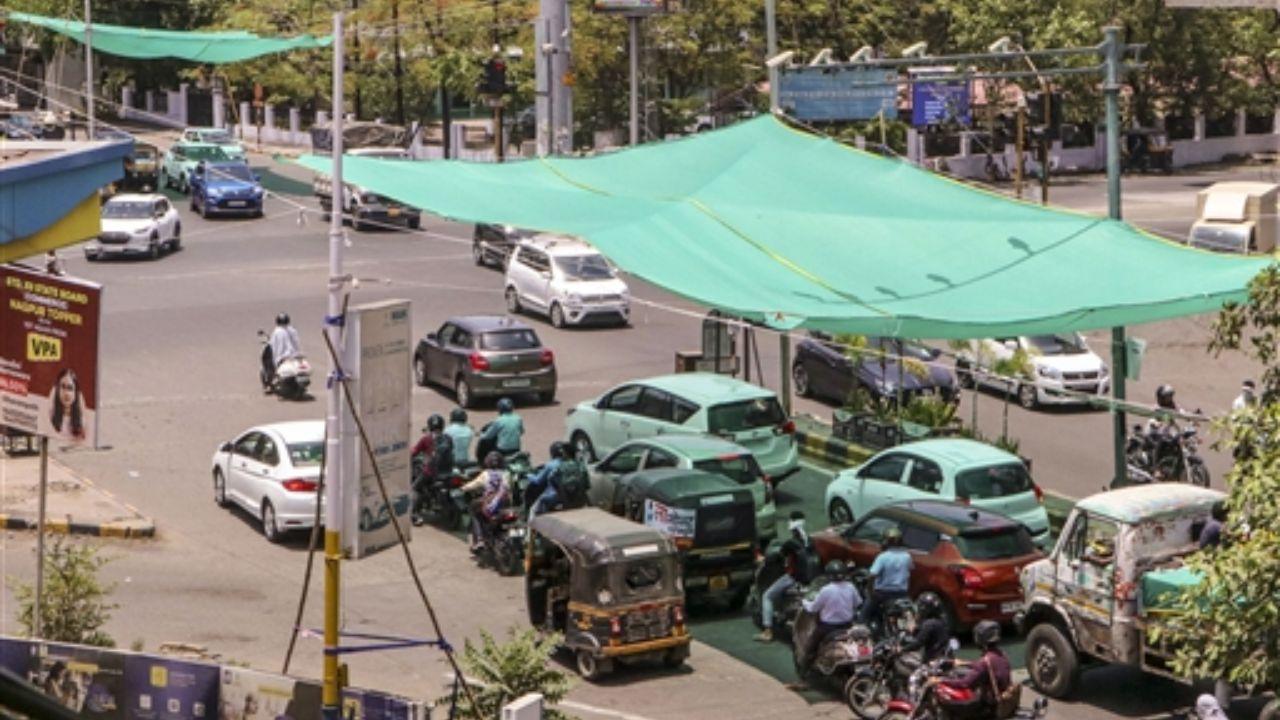


The Indian Meteorological Department forecasts a decrease in heatwave intensity over the next three days in parts of India. Fatehpur in Uttar Pradesh recorded the highest temperature at 46.2 degrees Celsius, followed by Sirsa and Ganganagar at 45.4 degrees Celsius. However, the capital city of Delhi saw a maximum temperature of 42.8 degrees Celsius and may experience relief from the heat in the coming days. The weather office also predicts light to moderate rain in some parts of Rajasthan which could provide further relief from the intense heat.
Heatwave Scorches India: Intensity to Ease, but Relief in Sight
Background
Heatwaves, characterized by abnormally high temperatures, have become a recurring phenomenon in India, particularly during the summer months. These extreme weather events can have significant health impacts on vulnerable populations, including the elderly, children, and those with pre-existing medical conditions.
Current Situation
According to the Indian Meteorological Department (IMD), several parts of India have been experiencing intense heatwave conditions in recent days. Fatehpur in Uttar Pradesh recorded the highest temperature of 46.2 degrees Celsius on Sunday, followed by Sirsa and Ganganagar in Rajasthan at 45.4 degrees Celsius.
The capital city of Delhi also sweltered under the heat, with a maximum temperature of 42.8 degrees Celsius on Monday. However, the IMD has forecast a decrease in heatwave intensity over the next three days in parts of the country.
Predicted Relief
The IMD predicts that light to moderate rain in some parts of Rajasthan will provide further relief from the intense heat. Delhi is also expected to experience some respite from the heat in the coming days, with a forecast of thunderstorms and showers.
Health Concerns and Precautions
Heatwaves pose a serious health risk, especially for the elderly, children, and those with pre-existing medical conditions. Symptoms of heat-related illnesses include dizziness, nausea, fatigue, and heat cramps.
To stay safe during a heatwave, it is recommended to:
Top 5 FAQs and Answers
1. What causes a heatwave?
Heatwaves are caused by a combination of factors, including high-pressure systems, lack of precipitation, and hot, dry air masses.
2. How long do heatwaves typically last?
Heatwaves can last for several days or even weeks, depending on the severity of the conditions.
3. What are the health risks associated with heatwaves?
Heatwaves can lead to a range of health problems, including heat stroke, heat exhaustion, and dehydration.
4. What can I do to stay safe during a heatwave?
The best way to stay safe during a heatwave is to stay hydrated, avoid prolonged exposure to the heat, and wear appropriate clothing.
5. Are heatwaves becoming more frequent due to climate change?
Studies have shown that heatwaves are becoming more frequent and intense due to human-induced climate change.

In an effort to fight the ongoing air pollution crisis, Delhi conducted its first-ever official cloud seeding operation led by IIT Kanpur. The operation involved a small aircraft dispersing specially designed chemical flares into the atmosphere to create rain. While experts say rainfall could occur within 15 minutes to 4 hours, the actual timeframe depends on various factors such as wind direction and moisture content. If successful, the government plans to continue the operation in the coming days.

In the quest for stronger, luscious hair, we often overlook the importance of nurturing the roots. Fortunately, Ayurveda has long stressed the significance of this practice, which has now been backed by modern science. Studies have shown that herbs like Bhringraj and Amla can activate hair follicles, promoting new growth and delaying greying. Fenugreek, Neem, Hibiscus, and Ashwagandha are also found to be beneficial in strengthening and nourishing the scalp, resulting in thicker and healthier hair.

A college student shares her personal journey of becoming a vegetarian, despite facing challenges and health concerns. She then delves into an ethics class she took, where the concept of marginal cases were discussed. Following an article by philosophy professor Alastair Norcross, she concludes that even though individual action may seem insignificant, refusing to consume factory-farmed meat holds moral significance due to the potential to prevent immense suffering for animals.

On October 24, the global community commemorates World Polio Day to honor the legacy of Dr. Jonas Salk and the efforts of countless individuals and organizations in the fight against polio. This highly contagious and potentially deadly disease, once a widespread epidemic, is now largely preventable thanks to the development of a life-saving vaccine. India's successful eradication of polio serves as a testament to the importance of strong vaccination programs and collaborations in public health initiatives.

As winter arrives in India, so does the hazardous air pollution. Delhi NCR's AQI has already crossed the 400 mark, making it crucial to invest in air purifiers, especially after Diwali. Dyson, Qubo, HomePure, and Philips have launched high-quality air purifiers with advanced features to tackle different types of pollutants and create cleaner indoor air. With prices ranging from Rs 5,000 to Rs 1 lakh, these purifiers are a practical and timely purchase for a healthier living.

In a recent family vlog, Indian celebrity couple Shoaib Ibrahim and Dipika Kakar shared their "natural" hair care routine for their son, using a homemade mask made with rice flour, flax seeds, and coconut oil. However, experts warn that what works for adults may not be suitable for babies, whose sensitive skin and scalp could react to the ingredients. While the ingredients may improve hair texture, they do not necessarily promote hair growth. Instead, a healthy diet and good scalp care are more important in maintaining healthy hair.

A recent consumer study has found multiple brands of soft contact lenses in the U.S. to contain "forever chemicals" that can be harmful to both the body and the environment. The study, conducted by the nonprofit organization Environmental Health Sciences, tested 18 varieties of popular contact lenses and found all of them to contain markers for PFAS. Brands such as Acuvue, Alcon, and CooperVision were among the list of affected products. This news serves as a cautionary lesson on the potential risks of overusing contact lenses.

On the birth anniversary of Dr. APJ Abdul Kalam, the ‘Missile Man’ of India, tributes pour in on social media celebrating his life, vision and impact. A visionary scientist, inspiring leader and true patriot, Dr. Kalam's humility, compassion and constant interaction with students continue to inspire generations. His tireless efforts in defense, science and youth empowerment have strengthened India's path towards self-reliance and his legacy continues to motivate young minds to dream big and work hard for the nation.

Recent studies have found that extreme heat, particularly when combined with high humidity, can have a significant impact on mental health. A study in India showed that when wet bulb temperature exceeded 27°C, the probability of reporting severe depression increased by 0.5%, even when the temperature was slightly lower. This finding is consistent with global reviews that have linked high temperatures to mood disorders, increased hospital admissions for psychiatric conditions, and even elevated suicide risk. The Lancet has also published evidence that rising temperatures worldwide are a growing threat to emotional and cognitive health.

In a meeting with university officials in Udaipur, Rajasthan Governor Hari Bhau Bagde stressed the importance of incorporating India's ancient knowledge traditions into academic research. He highlighted the deep repository of knowledge in India since ancient times and urged scholars and scientists to draw upon this tradition in their work. Bagde also suggested making ancient texts available in university libraries for study and research purposes, in order to shape the intellectual abilities and love for the nation among the younger generation.